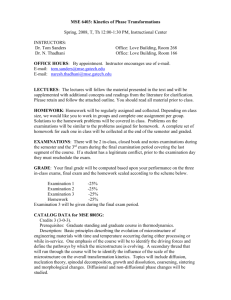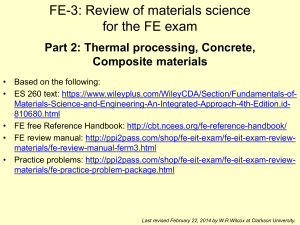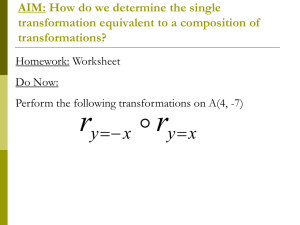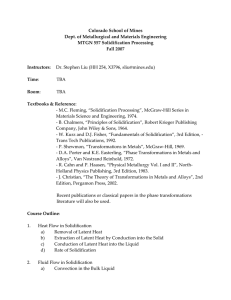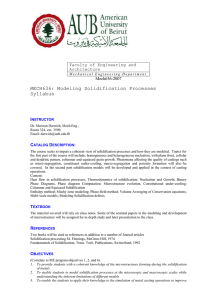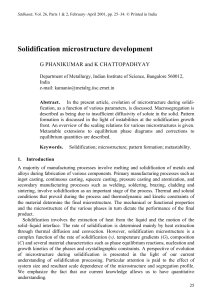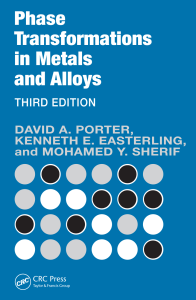MAE 5693 PHASE TRANSFORMATIONS IN MATERIALS FALL-2009 (Every Fall)
advertisement
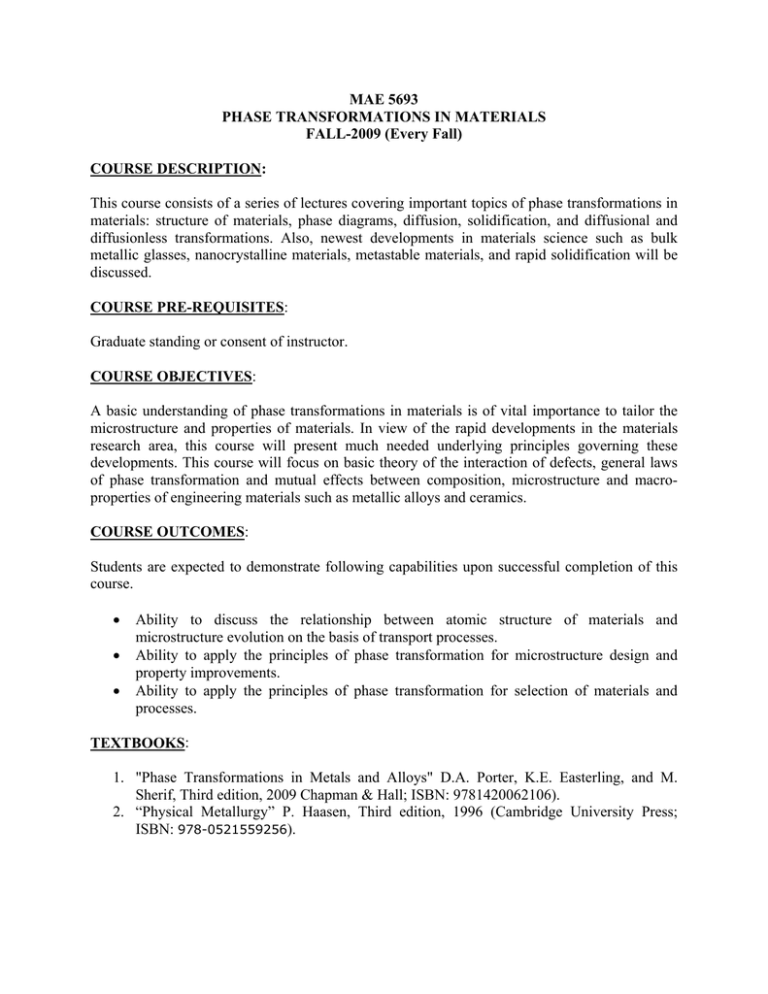
MAE 5693 PHASE TRANSFORMATIONS IN MATERIALS FALL-2009 (Every Fall) COURSE DESCRIPTION: This course consists of a series of lectures covering important topics of phase transformations in materials: structure of materials, phase diagrams, diffusion, solidification, and diffusional and diffusionless transformations. Also, newest developments in materials science such as bulk metallic glasses, nanocrystalline materials, metastable materials, and rapid solidification will be discussed. COURSE PRE-REQUISITES: Graduate standing or consent of instructor. COURSE OBJECTIVES: A basic understanding of phase transformations in materials is of vital importance to tailor the microstructure and properties of materials. In view of the rapid developments in the materials research area, this course will present much needed underlying principles governing these developments. This course will focus on basic theory of the interaction of defects, general laws of phase transformation and mutual effects between composition, microstructure and macroproperties of engineering materials such as metallic alloys and ceramics. COURSE OUTCOMES: Students are expected to demonstrate following capabilities upon successful completion of this course. • • • Ability to discuss the relationship between atomic structure of materials and microstructure evolution on the basis of transport processes. Ability to apply the principles of phase transformation for microstructure design and property improvements. Ability to apply the principles of phase transformation for selection of materials and processes. TEXTBOOKS: 1. "Phase Transformations in Metals and Alloys" D.A. Porter, K.E. Easterling, and M. Sherif, Third edition, 2009 Chapman & Hall; ISBN: 9781420062106). 2. “Physical Metallurgy” P. Haasen, Third edition, 1996 (Cambridge University Press; ISBN: 978-0521559256). GRADING POLICY: Homeworks: 25 % 2 Tests: 50 % Final Report: 25 % (Topic will be selected based on student’s thesis or research interests) Final grades will be will be determined by distribution of the overall scores. A final grade of >90% will guarantee a student an A. Likewise, a final grade of <40% will guarantee a student a failing grade. Homework assignments will be based on 2-weeks topics, to be turned in by 5.00 pm on Friday (one week to work on homework). Make-up homework assignments and exams will not be given. Requests for regarding must be made within a week of the papers being returned (1 day, for the final). Any evidence of academic misconduct will result in a grade “F” for the parties involved. Students are encouraged to review the OSU academic integrity policy. CLASS ATTENDANCE: Class attendance is required. Absences will be permitted only when advance notice is given to the instructor. DISHONEST ACADEMIC BEHAVIOR: Any evidence of academic misconduct will result in a grade “F” for the parties involved. Students are encouraged to review the OSU academic integrity policy. OFFICE HOURS: 2.00-3.00 PM on Tuesdays and Thursdays. LECTURE TOPICS: 1. Structure of Metals 1.1 Electronic Structure 1.2 Binding Forces 1.3 Crystal Structure 2. Structure of Solid Solutions 2.1 Solid Solubility 2.2 Interstitial and Substitutional Solid Solutions 2.3 Hume-Rothery Rules 3. Metallurgical Thermodynamics 3.1 First law 3.2 Entropy 3.3 Equilibrium conditions 3.4 Chemical Potential 3.5 Entropy of Mixing 3.6 Solubility 4. Phase Diagrams 4.1 Phase 4.2 Binary Phase Diagrams 4.3 Iron-Carbon Diagram 4.4 Ternary Phase Diagrams 5. Diffusion 5.1 Fick’s Laws 5.2 Solution to Diffusion Equation 5.3 Atomic Movement and Diffusion Coefficient 5.4 Vacancy Mechanisms 5.5 Diffusion in Substitutional Alloys 5.6 Diffusion Along Grain Boundaries and Dislocations 6. Solidification 6.1 Nucleation 6.2 Growth 6.3 Alloy Solidification 6.4 Solidification of Ingots and Castings 6.5 Weld Solidification 6.6 Defects 7. Diffusional Transformations in Solids 7.1 Homogeneous Nucleation 7.2 Heterogeneous Nucleation 7.3 Precipitate Growth 7.4 TTT Diagrams 7.5 Age Hardening 7.6 Eutectoid Transformation 8. Diffusionless Transformations in Solids 8.1 Martensite Crystallography 8.2 Martensite Nucleation 8.3 Martensite Growth 8.4 Tempering 9. Advanced Topics 9.1 Advanced Materials- Bulk Metallic Glasses, Nanocomposites 9.2 Advanced Processing- Laser Processing, Spark Plasma Sintering NOTES:
